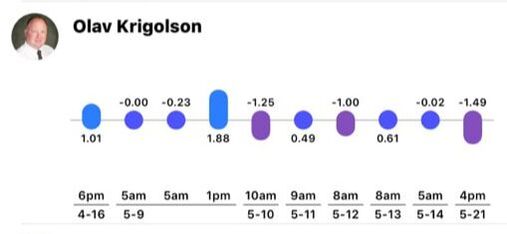|
It begins.
The UVic, UBCO, and UC members are travelling separately, but we are all at our respective airports and if our group chat is any indication, we are all excited! I have to admit when we first started playing with the MUSE EEG headband back in 2013 in my lab at Dalhousie I never thought it would lead to this. But here we are, en route to see if tech we have developed can be used to accurately monitor brain health and performance to support exploration in Outer Space. My inner geek is beyond excited. My neuroscience self is so curious. To be fair, we already know the tech works. We have tested over 1500 people in a variety of settings and we know we can do this. We just need to show it works in this particular situation, which it will. I was speaking at Cafe Scientifique the other night and asked a simple question: "What if we could peer into you brain and know what is wrong, right now, with 100% accuracy?" Imagine a world where you knew if you had cognitive impairment, dementia, or Alzheimers. Imagine a world where you knew if your recovery concussion was not progressing they way you hoped it would. Imagine a world where you could do things to tweak your brain performance and see the results instantaneously. Well, our tech is that world. As we continue to improve, expand, and validate our brain health and performance assessment we can answer these questions and create that world.
0 Comments
Leave a Reply. |
AuthorDr. Olav Krigolson is the Associate Director for the Centre for Biomedical Research, an Associate Professor in Neuroscience, and the Principle Investigator of the Theoretical and Applied Neuroscience Laboratory at the University of Victoria. ArchivesCategories |

 RSS Feed
RSS Feed